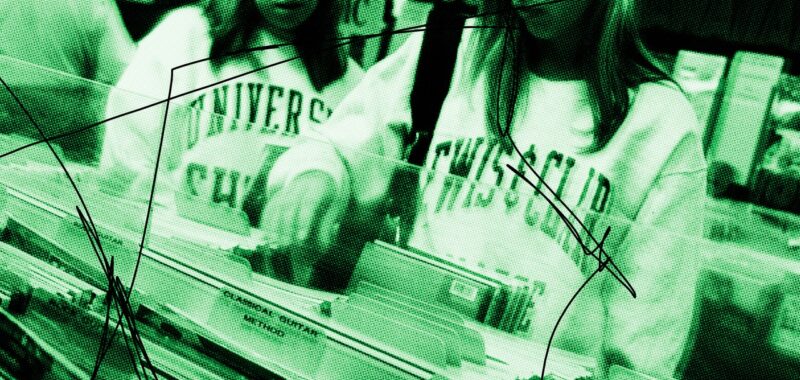This is an edition of the newsletter Pulling Weeds With Chris Black, in which the columnist weighs in on hot topics in culture. Sign up here to get it in your inbox every Thursday.
I rarely use Spotify because it’s ugly and doesn’t look as nice on my Apple iPhone. I consider it a necessary evil for work purposes, but the powerful algorithmic continuous playing features always just turned me off. Liz Pelly is an accomplished music journalist with years of experience managing DIY music venues, who I have been reading for years. In her new book, Mood Machine: The Rise of Spotify and the Costs of the Perfect Playlist, she explains how Spotify’s shadowy money-making methods and data-first approach not only hurt artists of all sizes but also affect the listener.
I spoke to Liz from my hotel room in Singapore about the health of the music industry, the social value of music, not being exploited, perfect fit content, royalty confusion, and how she consumes music.
GQ: Your book is making some waves in my world. How fucked is the music business?
Liz Pelly: It’s an interesting question. I state in the book early on that thinking about the health of the music industry isn’t necessarily the same thing as thinking about the health of music.
For many people in the music business, this is a really good time—people who work at major record labels or top executives at streaming companies. It tells a different story if you talk to independent musicians and people who work at independent record labels. For my book, it was really important to for me not only to speak to musicians who are financially struggling right now, which is the vast majority, but to talk to those who have done really well in the streaming era, whose critiques of the current music environment are different because they might feel beholden to the platforms in a different way because they’re a primary source of income.
The principal narrative is that being an independent musician is impossible now. You can’t make money touring, and you can’t make money streaming, and records don’t sell. Yet, all this stuff breaks through. If you make something great, you can find success. We see it repeatedly, but maybe it’s diminishing as a possibility.
I often hear people say how the ability to break through as an independent artist or have any semblance of sustainability feels like playing the lottery. Pursuing a music career shouldn’t have to feel like playing the lottery, even if that dynamic isn’t fully caused by streaming. The story of streaming is as much about what’s changed in music as it is about what’s stayed the same. Streaming was sold as this thing that was going to be democratic and level the playing field for musicians, but it has reproduced a lot of the same music industry problems.
The excerpt from your book that I’ve seen passed around the most is about the ghost business, where producers make music for playlists that Spotify prioritizes. It spoke to me because it’s staggering how most people don’t care. They put music on as background; that has never been what music is to me. I don’t put things on to help me concentrate. I don’t put things on to sleep. I put things on to listen to them. But it’s shocking to realize that music has become something else.

